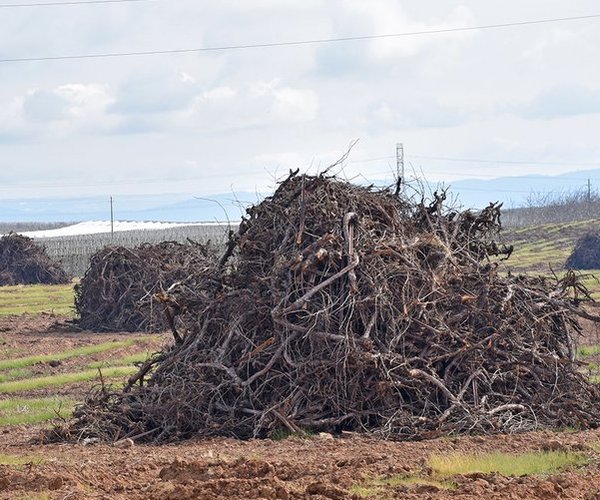Farm advocates and farmworkers left the state Capitol disappointed last month after a proposed tax credit aimed at boosting farm employment opportunities and assisting farms in California failed to advance out of a legislative committee.
The Senate Labor, Public Employment and Retirement Committee rejected Senate Bill 628 in a 4-1 vote along party lines, with the Democratic majority opposing the measure.
The bill, authored by state Sen. Shannon Grove, R-Bakersfield, would have created a tax credit to offset the cost to farmers of paying overtime wages. It was designed to address unintended consequences of California’s agricultural overtime law.
In 2016, the state adopted Assembly Bill 1066, which beginning in 2019 phased in a requirement that farmworkers—like workers in other sectors—be paid time and a half when they work more than 40 hours a week or 8 hours a day. Previously, farmers could employ workers for up to six 10-hour days a week without paying overtime.
Proponents of AB 1066 said the bill was intended to boost earnings for farmworkers. But research suggests the law has lowered farmworker income as employers cut hours to balance their wage bills.
During the first two years the law was phased in, the proportion of California farmworkers working more than 50 hours a week—the overtime threshold at that point in the phase-in—dropped by about half, according to a 2023 study by Alexandra Hill, an agricultural and resource economics professor at the University of California, Berkeley, which analyzed data from 2019 and 2020.
Hill, who has continued to analyze California farmworker employment data, told Ag Alert® last month that her analysis of two additional years of data was “quite consistent with the earlier study, and even a bit stronger and larger.”
By 2022, AB 1066 had caused California farmworkers to lose an average of five hours of employment per week, she said, amounting to roughly $100 in lost income.
“There is really convincing evidence that work hours for individual farmworkers fell after the law went into effect,” Hill said.
Guadalupe Gonzalez, a crew leader who has worked in Napa Valley vineyards for more than a decade, traveled from her home in Suisun City to testify last month at the committee hearing in Sacramento.
During the past few years, Gonzalez and her partner, who also works as a farm crew leader, have lost nearly a third of their income as their hours were slashed, she told Ag Alert®.
“It has had a lot of consequences for our family,” said Gonzalez, who has a 3-year-old daughter and a 1-year-old son.
Gonzalez spends more than half her paycheck on childcare. While she used to take time off between the end of grape harvest and the start of winter pruning, last year during the winegrape offseason, she found work harvesting carrots, strawberries and lettuce to keep up with expenses.
Still, Gonzalez said she has struggled to pay her family’s medical bills on top of other costs.
“The reality is it doesn’t cover everything,” she said of working 40 hours a week at $20 an hour. By incentivizing farmers to restore overtime hours, “this bill could make our daily life a little better,” Gonzalez told the committee.
The bill, which was co-sponsored by the California Farm Bureau and the California Association of Winegrape Growers, was backed by numerous groups representing growers and by the California Farmworker Foundation. The California Federation of Labor Unions opposed SB 628.
Sara Flocks, legislative and strategic campaigns director for the federation, characterized the proposed tax credit as subsidizing farm employers for a cost other employers must bear on their own.
“That drains funding from the general fund,” she said at the hearing. “That takes away from every other priority of the public.”
State Sen. Lola Smallwood-Cuevas, D-Los Angeles, who chairs the labor committee, made a similar criticism, saying the bill would transfer the cost of doing business onto the rest of California. She added that giving an overtime tax credit to farm employers could cause other sectors to demand the same support.
Farm advocates had argued the tax credit would be a “win-win” for struggling farms and one of the state’s most vulnerable constituencies—farmworkers.
They emphasized the proposed tax credit was not partisan in nature. Two Democrat-controlled states—Oregon and New York—introduced similar tax credits after extending overtime pay to farmworkers, and California has a tax credit that subsidizes the state’s iconic film industry. SB 628 received support from state Sen. Melissa Hurtado, D-Sanger, who chairs the state Senate Agriculture Committee but does not serve on the labor committee.
“This is a commonsense solution,” Grove, the bill’s author, said during the hearing.
California’s agriculture sector continues to face challenges. From 2017 to 2022, the state lost 10% of its farms, according to the most recent Census of Agriculture released by the U.S. Department of Agriculture. Since then, headwinds have only mounted as growers struggle to cope with rising production costs and lower crop prices.
“In California, we grow food to the highest standards of workplace safety and wages, environmental protections, food safety, all those things, and that all costs money,” said Bryan Little, chief operating officer of Farm Employers Labor Service and senior director of policy advocacy at the California Farm Bureau. “If taxpayers and policymakers in California want all of that to happen, they need to understand that there are knock-on effects.”
Farm advocates plan to continue pushing lawmakers to address the challenges created by California’s agricultural overtime law, Little said, whether in the form of a tax credit or another solution.
“This is not over,” he said. “We need to find a solution that’s acceptable across a pretty broad spectrum of ideologies in the state, and so that’s what we’re going to continue working on.”
Editor’s note: Some quotes in this story were translated from Spanish.
Caleb Hampton is assistant editor of Ag Alert. He may be contacted at champton@cfbf.com.





